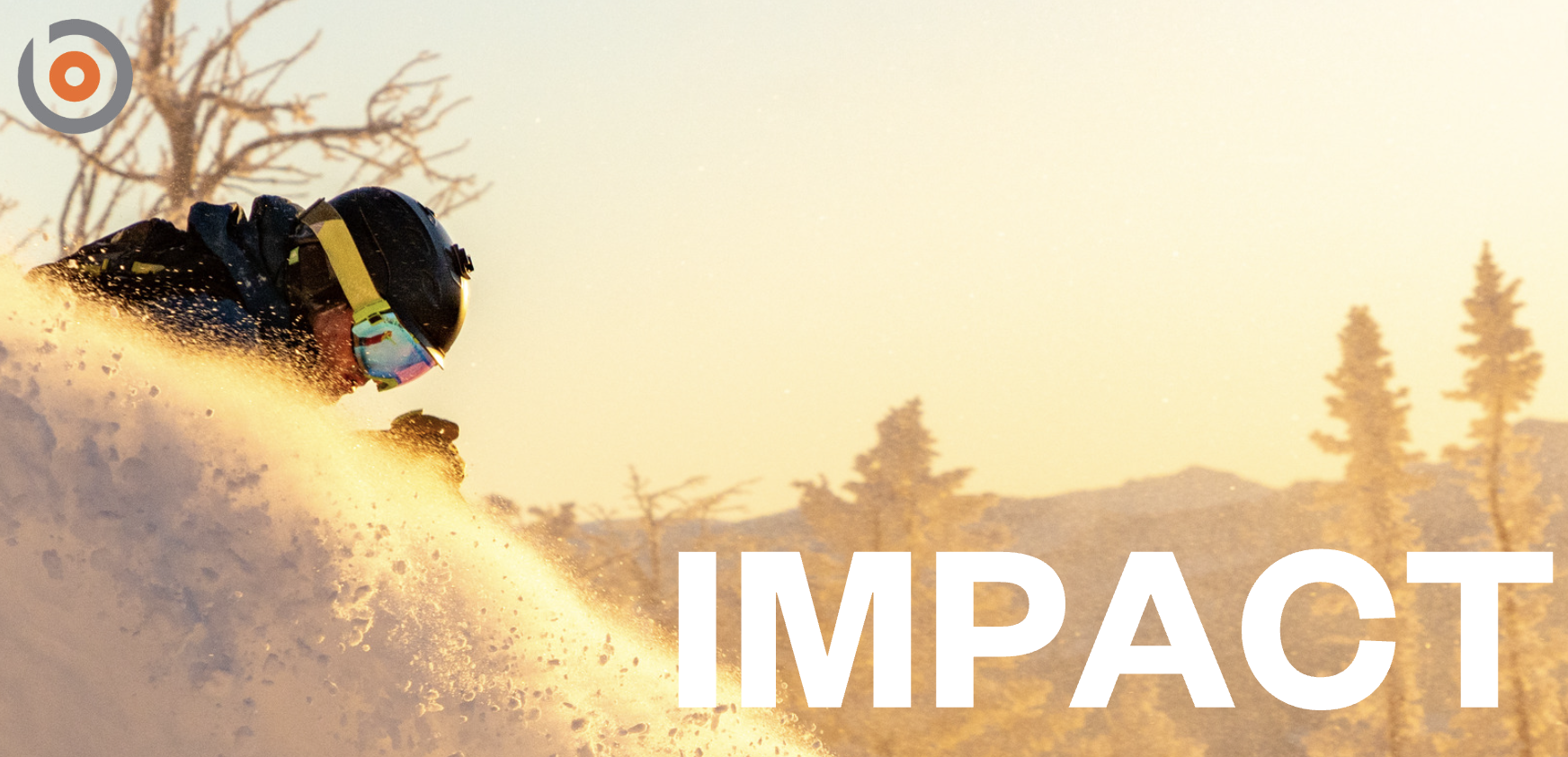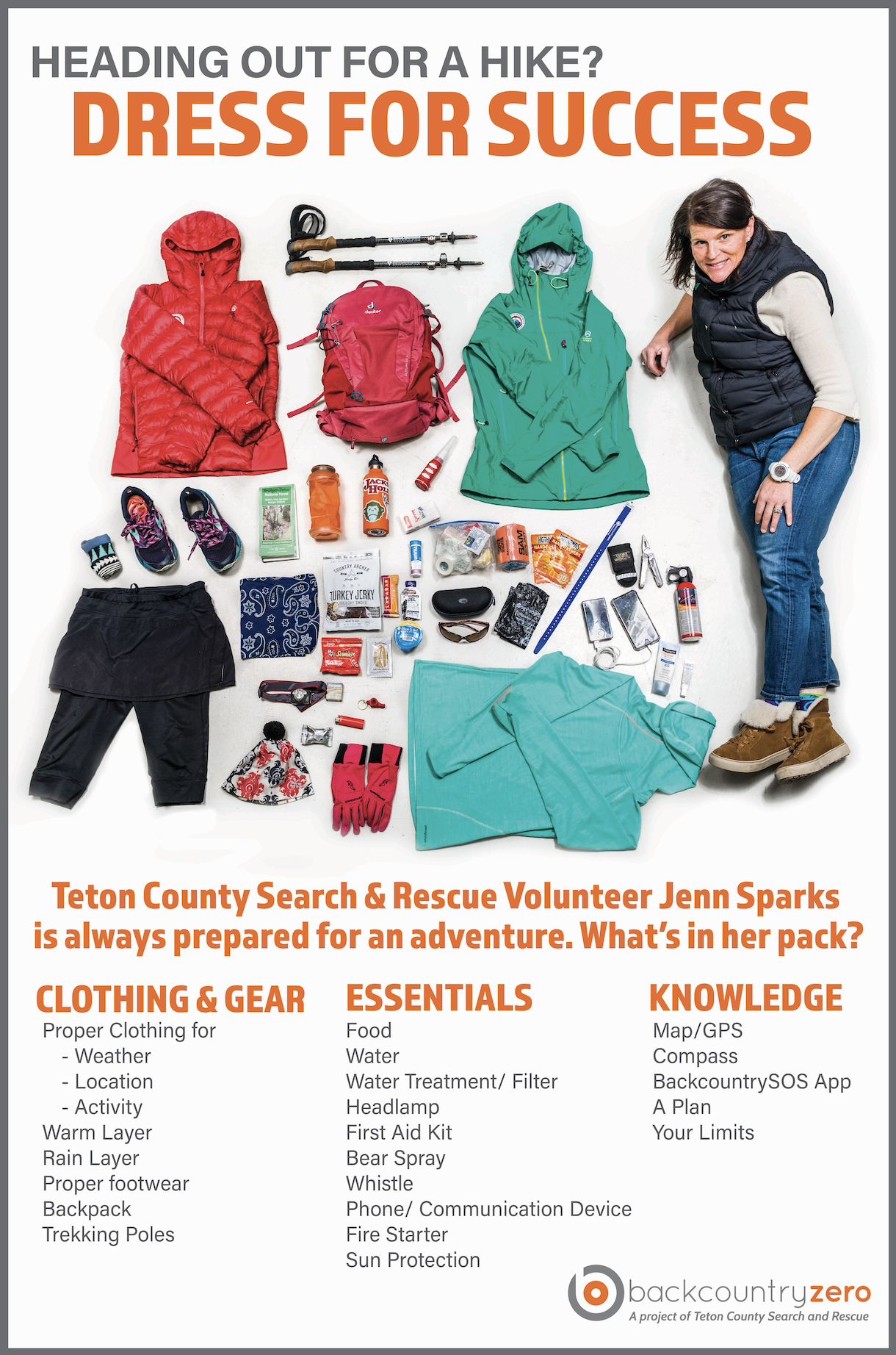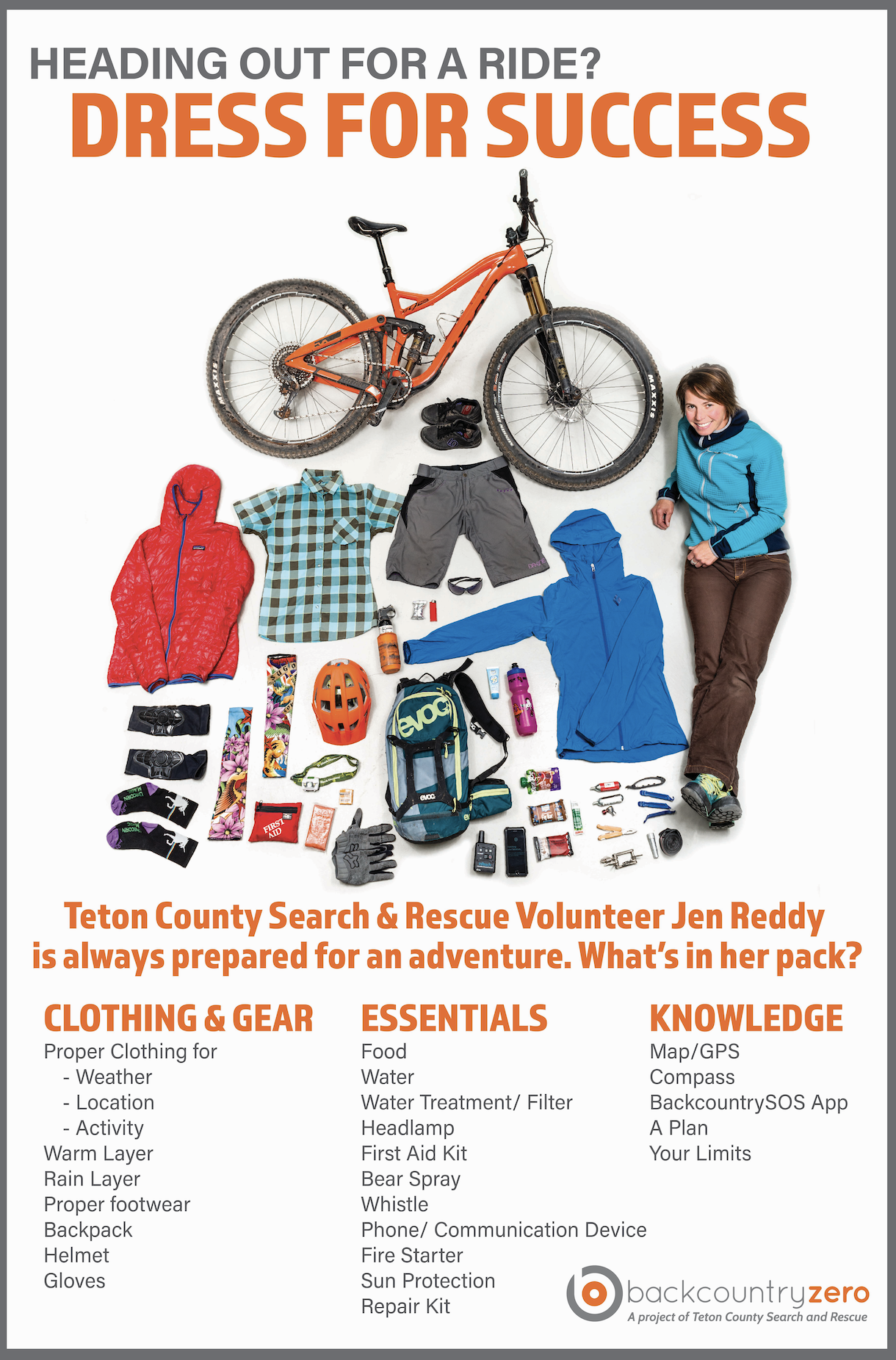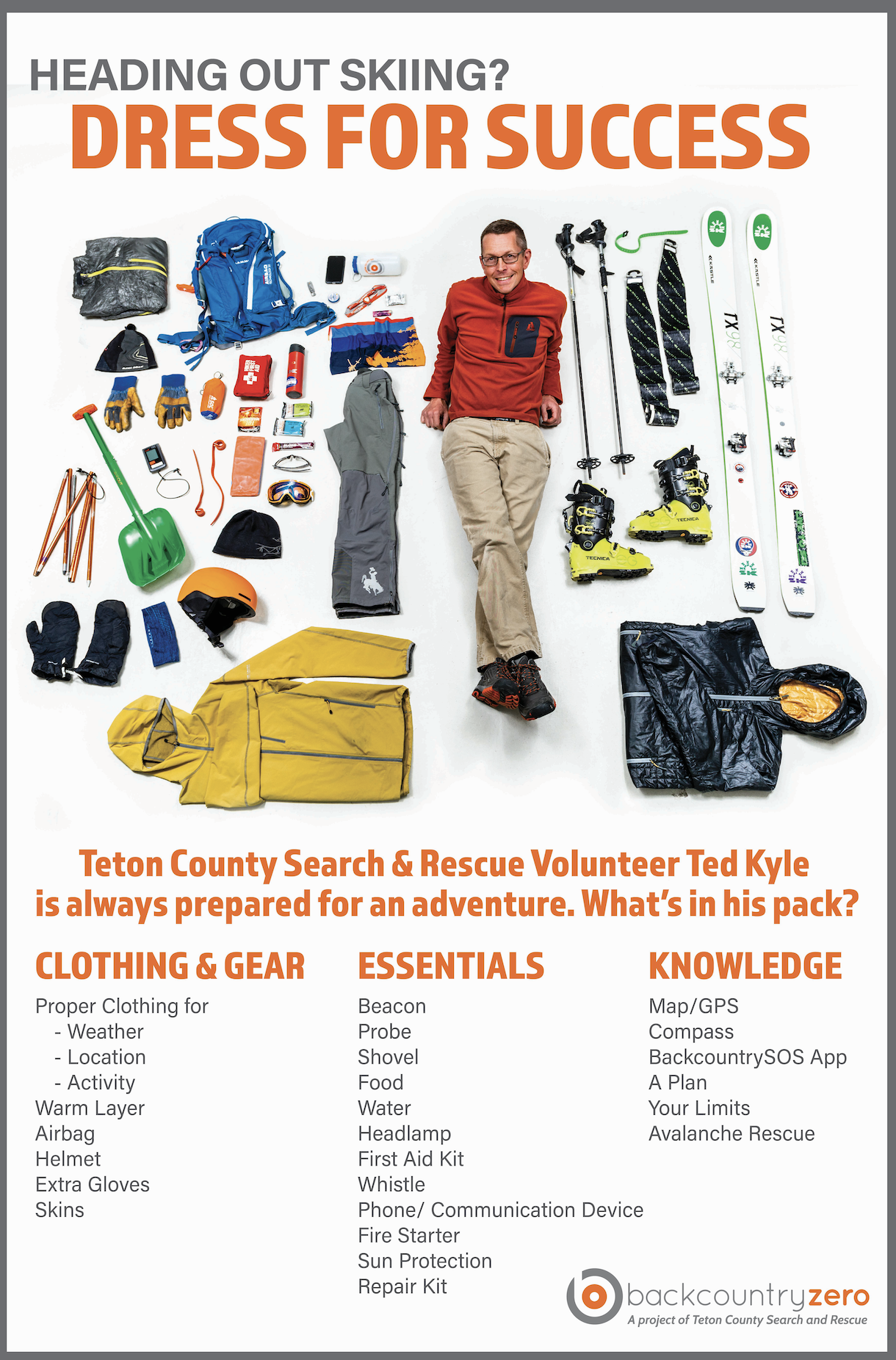The Five-Year Review
A Project to Reduce Fatalities and Serious Injuries in the Tetons
In 2020, TCSAR Foundation marked the fifth anniversary of Backcountry Zero, a community vision to reduce major incidents in the backcountry surrounding Jackson Hole. If one draws a conclusion simply by the number of annual fatalities in the backcountry (pre-pandemic), the project appears to be working. Yet that grim metric tells only part of the story, as safety, awareness and risk are always subject to nuance, and accidents are rarely the same.
Backcountry Zero launched to raise awareness, invite open and honest conversation about risk and decision-making, and provide educational opportunities for outdoor skills. At the time, backcountry use was exploding in and around the Tetons “in a seemingly panicked way,” remembers Tim Ciocarlan, a founding member of TCSAR. There had also been several high profile accidents, compelling the Foundation to take leadership on the issue.
“Shaming culture is slowly being replaced with curiosity, empathy and reflection as people become more interested in how they can learn and grow. ”
Many locals, professionals and partners now report an evolved attitude in our community as we collectively pivot toward a more comprehensive understanding of the risks associated with the backcountry. “It’s making a difference,” says Ciocarlan. “I can’t quantify it, but we aren’t rescuing nearly as many people as we used to.” That despite the large increases in backcountry visitors.
The Backcountry Zero project continues to trend toward education, awareness and conversations about risk. We are hearing more stories of near misses and lessons learned. Shaming culture is slowly being replaced with curiosity, empathy and reflection as people become more interested in how they can learn and grow. Backcountry Zero has been part of this community evolution and will continue to empower people to be prepared, practiced, and present while enjoying the wilderness.
Thank you for being part of this journey. In this review, you will see details about what we have done, who we have reached and what the plans are for the next phase of the project. We know we have more work to do.
It Starts With Education
Backcountry Zero offers workshops and skills training to the public
Educational workshops have become key to Backcountry Zero’s success. Held year round, different workshops offer skills training to prepare adults and children for backcountry adventures no matter the season or activity. Standard mountain awareness topics are a consistent offering, advanced skills and sport-specific workshops are also available.
“By engaging with local schools, Backcountry Zero has taught basic outdoor skills to more than 1,000 children. ”
Our most popular classes have been What’s in Your Pack (WIYP), where attendees get expert advice and training in a welcoming and accessible setting. By engaging with local schools, Backcountry Zero has taught basic outdoor skills to more than 1,000 children. "The education piece is key," says TCSAR team member and training advisor Anthony Stevens (pictured below). "What's in Your Pack is excellent and we're still getting continuous turnout." Many of the workshops wouldn’t be possible without the help of TCSAR volunteers and partnering groups and agencies, such as Grand Teton National Park, Snake River Fund, Jackson Hole Babe Force, and American Avalanche Institute, among many others. It’s this cooperation and commitment to elevate backcountry safety awareness that has nurtured Backcountry Zero from the beginning.
“Keep up the outreach for this type of education. Super valuable. An ounce of prevention!!”
“Always a highlight of my winter. As a ski patroller, I find it really interesting to compare notes on treatment/evacuation techniques and on the equipment used”
Pop Quiz
"What's in Your Pack" Class Participation
Other Classes Include:
Avalanche Rescue and Survival | Lightning Safety | Fire Building | First Aid | Trip Planning Emergency | Shelter Building | Bear Awareness | Bear Spray Practice | Cold Injury and Hypothermia Management | Making Decisions Under Stress | Avy Rescue for Snowmobilers | Mountain Bike Essentials | Advanced Patient Packaging | Summer Snow Travel | How to Read and Interpret the Avy Bulletin
EVERY RESCUE HAS A STORY
The Fine Line podcast offers personal stories about backcountry accidents
Our MOST POPULAR EPISODES
One of the most effective ways to elevate backcountry safety awareness is through the telling of personal stories by those who’ve experienced traumatic events. The Fine Line, the podcast produced by Teton County Search and Rescue Foundation, achieves this through interviews with people who’ve been involved in accidents in the Jackson Hole backcountry. In four years, the podcast has produced more than 30 episodes, ranging in topics from lost backpackers, climbing accidents, swiftwater rescues, short-haul missions, and bear attacks.
What makes this podcast stand out in a crowded medium is that the stories feature the dynamic relationship between patients and first responders. During the course of the interview is often when the patient gets to speak directly to the person who came to their aid. The lasting take-aways are lessons learned, empathy for survivors, and a deeper understanding and respect for first-responders. Episodes can be found at BackcountryZero.com, SoundCloud, Spotify, and Apple podcasts.
“IF YOU DON’T KNOW...DON’T GO”
Backcountry Zero at JHMR reaches thousands of skiers and snowboarders
When Jackson Hole Mountain Resort opened its backcountry gates in the winter of 1999-2000, it changed the landscape of resort skiing in the United States. It fostered a culture where one could ski inbounds one run and out-of-bounds the next, and thus influenced an entire genre of ski equipment (hike/walk modes on alpine ski boots, for example), as well as travel itineraries, guides for hire, media production, and a deep thirst for the backcountry skiing.
It also created a need for backcountry safety messaging. Over the ensuing two decades, TCSAR would respond to more wintertime accidents in the JHMR backcountry than anywhere else. With the launch of Backcountry Zero in 2015, TCSAR Foundation partnered with JHMR to bring a safety awareness campaign to the ski area. A key component would be community volunteers taking surveys of skiers and snowboarders exiting the resort gates. The program coincided with a new tram announcement, which encouraged people exiting the gates to have “proper equipment, a partner and a plan. And if you don’t know … DON’T GO.”
The BC gate survey program, which continues this winter, has achieved two important goals: build awareness by helping a portion of the skiing public understand the risks associated with accessing uncontrolled backcountry, and establishing a baseline of data for backcountry skiing habits.
Carson Butler, a volunteer survey-taker, gathers data at a JHMR backcountry gate.
Backcountry Gate Survey: Based on 2,874 Respondents
BackcountrySOS App
The Mobile App for Emergencies
Wyoming Snow and Avalanche Workshop
BACKCOUNTRY ZERO’S MARQUEE EVENT
Every late October for the last five years, the Wyoming Snow and Avalanche Workshop (WYSAW) has provided a series of presentations that offer professionals and recreational backcountry users an opportunity to engage in conversations addressing risk management in avalanche terrain. Topics have included reviews of avalanche incidents, discussions of slab mechanics, reflections on risk tolerance, and strategies for effective teamwork. As WYSAW has grown over the years it has evolved to include workshops for professionals and an entirely virtual format in 2020 that doubled previous registration numbers. Panel discussions are a fixture of WYSAW and have tackled topics including snow safety in the media, Teton Pass issues, the aftermath of avalanche accidents, and the ethics of backcountry skiing during a pandemic. WYSAW gives backcountry users an annual opportunity to prepare for the upcoming winter by hearing from local, national and international experts on topics that factor into how we manage risk while engaging with avalanche terrain.
“The most impactful part of the day for me was the speech made by the two gentleman involved in the Gothic Couloir avalanche incident. This ... was impactful because it gives a great perspective on how vulnerable everyone is, no matter the skill level.”
WYSAW Registration
“I believe WYSAW presents our local avalanche community a great opportunity for continuing education from people outside of our normal sphere of influence. The variety and quality of the presenters over the past few years has been exemplary and I incorporate lessons that I have learned from many of them in my everyday practice.”
- Don Sharaf, longtime avalanche educator and co-owner of American Avalanche Institute
What’s Next for Backcountry Zero
help us get the message out
The first five years of Backcountry Zero demonstrated the need for basic backcountry education, including: what gear to bring, how to use bear spray, basic first aid, and avalanche awareness. Backcountry Zero will always reliably offer seasonally appropriate workshops. Next the program will move to serve people who have been getting out for years, and do more to reach those who face barriers of entry to basic outdoor education.
This program has succeeded in providing awareness-level education, and will work to access broader audiences through virtual platforms and expanded community partnerships. For those already getting outside with some regularity, Backcountry Zero will provide a road map for progression and challenge a commitment to continuing education. The volunteers of Teton County Search and Rescue will never stop training and honing their skills; we seek to inspire the same from all community members.
Starting in 2021, the Backcountry Zero Ambassador program will evolve to focus solely on social media outreach. Influential athletes, connected to our community, will generate content and promote Backcountry Zero messaging to more effectively reach broader audiences. Greater Preventative Search & Rescue infrastructure will also be pursued. Programs like the loaner PFD stations (in partnership with the Snake River Fund and Jackson/Teton County Parks and Recreation) will continue to be present at trailheads and boat ramps. We will also continue to reach out to the motorized-sport community (snowmobiles, UTVs, etc.) to make sure they are included in the conversation.
The first five years of Backcountry Zero learned how to address the immediate needs of booming recreation in the mountains and rivers of Teton County. The program has experienced great successes and reached thousands of people. These initiatives will continue with a renewed focus on a commitment to community accountability.
Youth Programming & Youth Programming Partners
• Youth WIYP (summer and winter)
• TCSD #1
• CREST
• Mountain Academy
• Teton County Parks and Recreation
• Teton Literacy
• Children’s Museum
• JH Ski & Snowboard Club
• TSAR Venture Crew
• Teton Behavioral Therapy
• Coombs Outdoors
• Children’s Learning Center
• Free registration for minors @ WYSAW
• Hole Food Rescue
Other Partners
• Young Professionals of the Tetons
• Snake River Fund
• JH Babe Force
• Mountain Bike the Tetons
• Bridger Teton Avalanche Center
• JHMR
• JH Sports
• Headwall Sports
• American Avalanche Institute
• Jackson Hole Outdoor Leadership Institute
• Friends of Pathways
• Responder Alliance
• Jenny Lake Rangers & Grand Teton National Park
• PAWS of Jackson Hole























